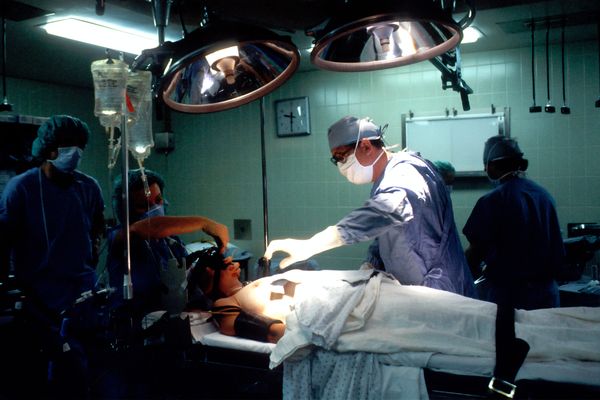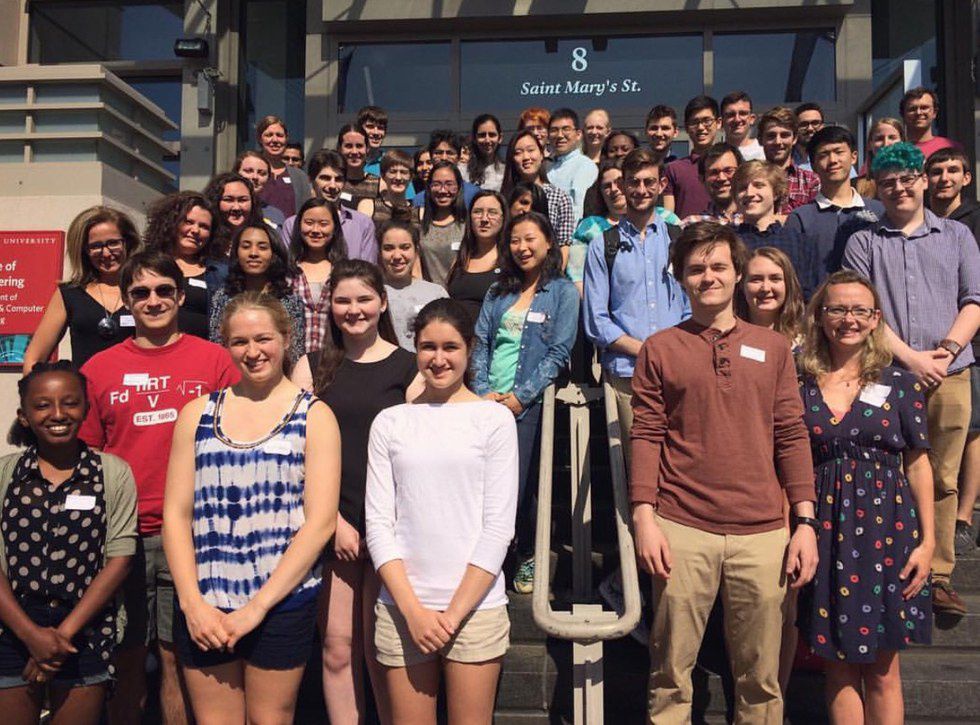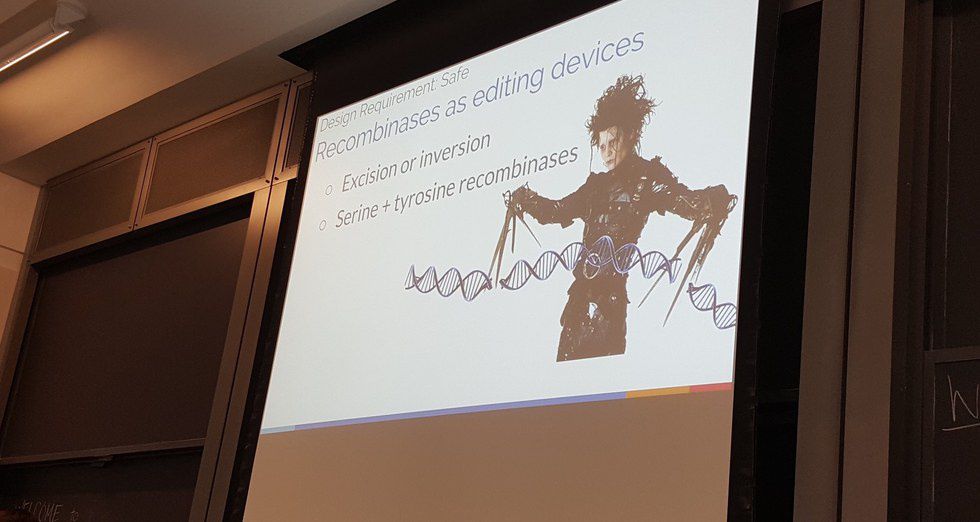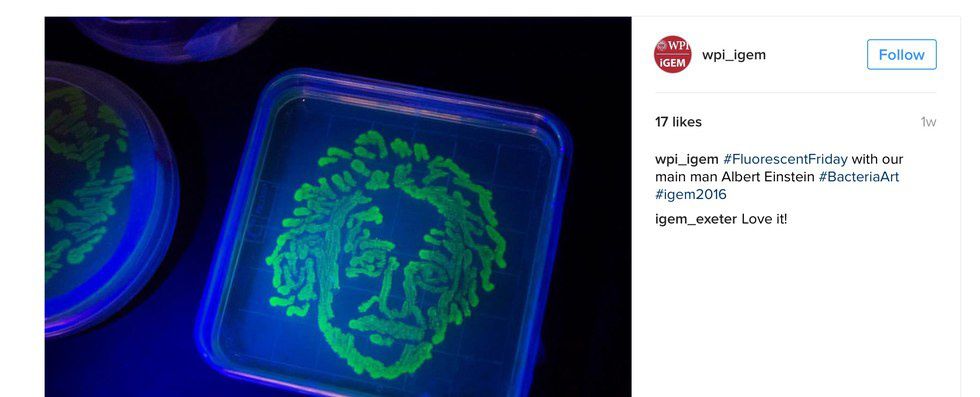On Friday, June 24, iGEM teams from around New England met for the first New England Genetically Engineered Machines (NEGEM conference of the summer session in the Boston University Photonics Center to share their project ideas and designs, and to seek feedback from their peers. Representatives from eight schools, including Boston University (BU), Harvard, Massachusetts Institute of Technology (MIT), Northeastern, Tufts, University of Massachusetts Dartmouth, University of New Hampshire (UNH), and Worcester Polytechnic Institute (WPI), were able to attend the conference.
The teams met to share progress on their projects for the International Genetically Engineered Machines (iGEM) competition set to take place at the end of October of 2016. iGEM is a global synthetic biology competition, focused on using specialized tools from genetic and biological engineering to make advancements in a plethora of areas. With recent advancements in biological and engineering tools, such as the refinement and application of the CRISPR-Cas9 system, it is a very exciting time to be in the field of synthetic biology. There are over 300 teams registered to participate in this year's event, over 40 more than attended the Giant Jamboree last fall. This year's teams are largely from North America, Europe, and Asia, each team shown as a red dot on the world map below.

After introductions and a quick tutorial from Benchling, a free-for-universities genetic engineering and design tool, the 25-minute presentations began. As the hosts, the BU teams presented first, followed by Northeastern's presentation on neutralizing wastewater pathogens and using the waste to produce electricity. The WPI team will be using CRISPR/Cas9 based technology to make single nucleotide changes in RNA, while MIT's team is creating a treatment or diagnostic tool for endometriosis, and Harvard's team plans to use bacteria to degrade PET from plastic as a way to produce electricity. iGEMers from Tufts will be continuing a project from last year's team, creating a delivery system for the CRISPR-Cas9 tools that many teams and researchers utilize. The UMass Dartmouth team came to NEGEM looking for feedback and potential applications for their RNA thermometer idea, and the representative from UNH's iGEM team shared their idea to create a biosensor for PCBs, known carcinogens. Each presentation was followed by a Q&A session where other iGEM students, as well as their mentors and representatives of Benchling and iGEM HQ, could ask for clarification and provide feedback.
Throughout the presentations, iGEMers carefully interspersed some quality memes, casual reminders that these teams doing impressive scientific work are also just undergraduates from local colleges. BU included an image on their slide describing transfection of Patrick from the Nickelodeon cartoon Spongebob declaring in bold white text, "We need to take these plasmids / And put them somewhere else." While explaining the function of proteins called recombinases, MIT's team used a picture of Edward Scissorhands snipping large blue double helices. The WPI team shared that they spend their free time in the lab making fluorescent bacteria drawings in petri dishes, and they post photos of these mini artworks on Instagram and Twitter using the tag #FluorescentFriday.
After receiving crucial feedback from their peers, the teams will continue refining designs and presentations to present at the next NEGEM conference on October 8th, 2016.

























